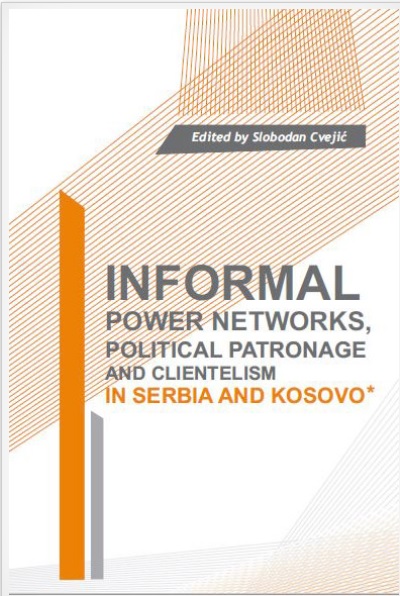The study represents results from empirical research on the informal relations between political and economic elite in Serbia and Kosovo. Informal and presonal networks that predate the socialist period are am important legacy for the development of democratic systems and market economy in former socialist countries. In the context of weak and blurred institutional and normative frameworks, individuals tend to rely more on informal institutions and practices. Therefore, patterns of clientelism and „culture of informality“ are important facets for understanding the contemporary trajectories in the political and economic subsystems of former socialist societies.
The general aim of this research was to identify the main norms, determinants and social effects of informal norms, relations and practices through which political elite captured economic resources in Serbia and Kosovo. Qualitative research design included analytical reviewing of relevant literature and data sources, as well as semi-structured face-to-face interviews with representatives of political and economic elite on national and local level
Despite institutional and personal changes in political and economic system after 2000, analysis of informal relations, party patronage and political clientelism in Serbia has showed that economic system remained under political domination and power and privileges, in turn, are concentrated in the hands of a small group of people. A complex informal system of power concentration and resource distribution had been set and maintained based on informal, yet quite strict, rules and an hidden, but very functional, roles. Analysis in Kosovo also showed that relationship between economic and political arenas are mutually dependent. The key players is political elite which, having access to public goods, gave birth to new economic elites as well.
*Designation for “Kosovo” is without prejudice to position on status, and is in line with UNSCR 1244 and the ICJ Opinion on the Kosovo Declaration of Independence.













